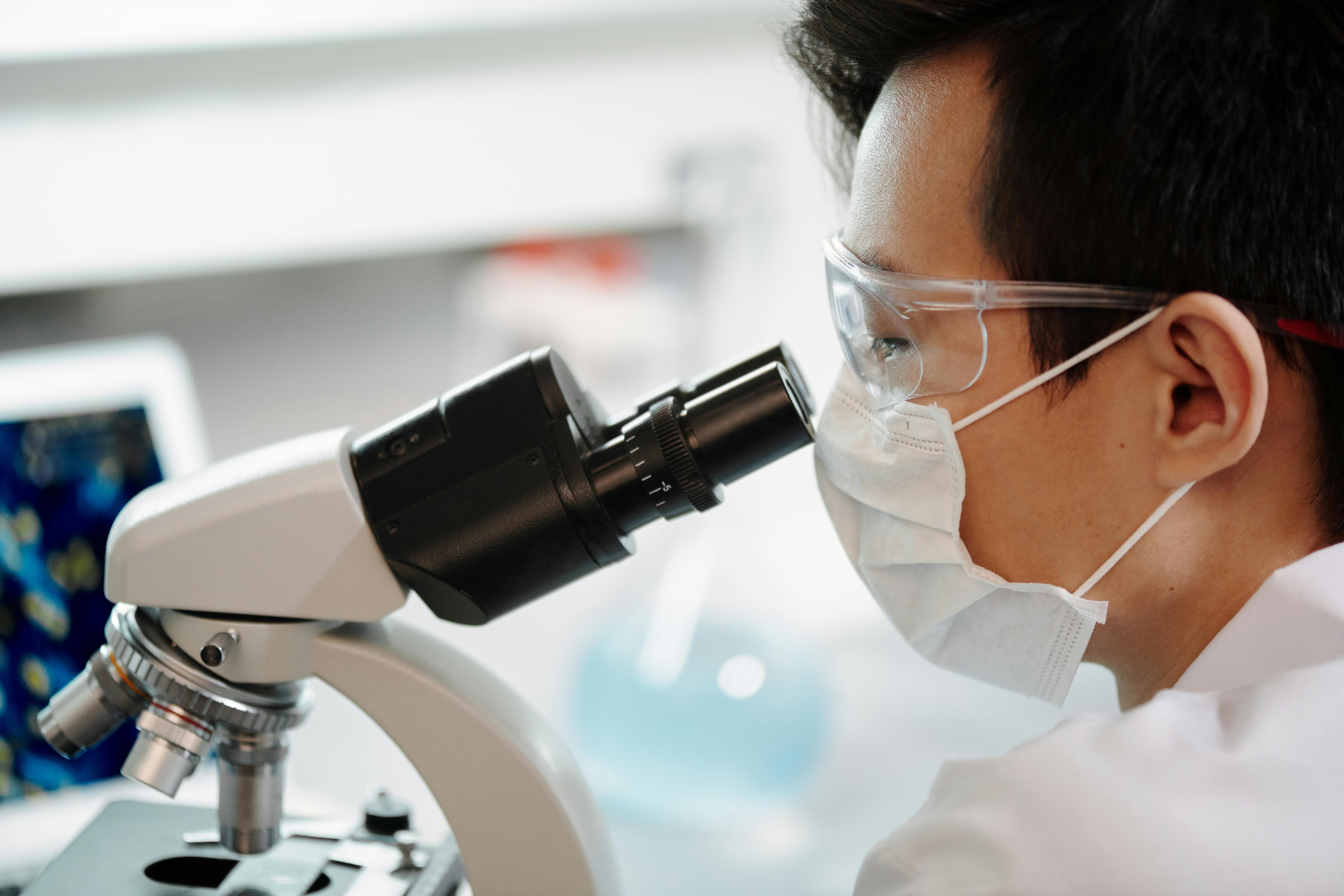
Regenerative medicine, a groundbreaking approach to healing and recovery, taps into the body’s own capacity to repair damaged tissues and promote recovery at a cellular level. For many patients, this means faster healing, less reliance on invasive procedures, and more natural results. If you’re considering regenerative medicine, it’s crucial to understand the types of conditions it can benefit and how Balanced Medical Solutions helps you determine if you’re a good candidate.
What is Regenerative Medicine?
Regenerative medicine is a branch of medicine focused on replacing or repairing damaged cells and tissues. Using stem cells, exosomes, and other bioactive molecules, regenerative therapies stimulate healing from within. This type of medicine often bypasses or reduces the need for long-term medications, providing relief for a variety of chronic conditions.
Common Regenerative Medicine Techniques
The most common regenerative treatments include:
- Stem Cell Injections and IV’s: Stem cells can develop into different cell types and promote the growth of new, healthy tissue. An intravenous approach for patients who may benefit from a systemic infusion of stem cells for a broader impact on health and recovery.
- Exosome Injections and IV’s: Exosomes are extracellular vesicles that deliver proteins, lipids, and genetic material to cells, aiding in cellular repair and reducing inflammation.
- Platelet-Rich Plasma (PRP) Therapy: PRP is derived from the patient’s own blood and is rich in growth factors that stimulate tissue repair and regeneration.
Key Conditions That Benefit from Regenerative Medicine
Regenerative medicine has shown promise in managing and treating a range of conditions. Below, we’ll explore some of the most common conditions Balanced Medical Solutions treats that may benefit from stem cell, PRP, and exosome treatments.
1. Arthritis and Joint Pain
Osteoarthritis and rheumatoid arthritis are characterized by joint inflammation, cartilage degradation, and pain. Traditional treatments focus on managing symptoms rather than addressing the root cause. Stem cell and exosome IV’s can stimulate cartilage repair and reduce inflammation throughout the whole body.
2. Back Pain and Spinal Conditions
Chronic back pain can stem from degenerative disc disease, spinal stenosis, or herniated discs. Regenerative medicine IV’s offer non-surgical treatment options for these conditions. Stem cells and exosomes can improve disc hydration, reduce inflammation, and promote tissue repair. As a result, many patients experience relief from chronic pain and improvement in mobility.
3. Hair Loss
For those dealing with hair thinning or loss, regenerative treatments, such as stem cell with PRP and exosomes injections, have shown potential for stimulating hair follicle activity and promoting new hair growth. Stem cells with PRP or exosomes are injected into the scalp, where they encourage the development of new hair and improve the thickness of existing strands. This method can be especially beneficial for those experiencing early-stage hair loss.
4. Sexual Wellness and Erectile Dysfunction (ED)
Regenerative therapies, including stem cell injections with and without PRP, have gained traction in treating sexual wellness issues such as erectile dysfunction (ED). By enhancing blood flow and repairing vascular tissue in the penis, regenerative medicine can help improve sexual function for men with ED. This approach may be particularly helpful for individuals who want to avoid or have not responded well to conventional treatments like medications. Exosome injections have also shown great promise in treating ED.
For women, PRP injections, also known as the Climax Shot for Women, offer a solution to sagging tissue, vaginal dryness, or the inability to achieve orgasm. The Climax Shot for Women can help rejuvenate vaginal tissues, helps women no longer feel pain during intercourse, helps boost sex drive, and even helps treat urinary incontinence
5. Autoimmune and Inflammatory Conditions
Conditions like Crohn’s disease, lupus, and multiple sclerosis are autoimmune disorders where the immune system mistakenly attacks the body’s own tissues. Stem cell and exosome IV therapy has shown promise in modulating the immune response, reducing inflammation, and helping to regenerate damaged tissues in these conditions. Although more research is needed, regenerative medicine offers potential relief and improvement in the quality of life for autoimmune patients.
6. Neurological Conditions
Regenerative medicine shows promise for treating Alzheimer’s and other neurological conditions by utilizing stem cells and exosomes to support brain repair and reduce neuroinflammation. Exosomes derived from mesenchymal stem cells (MSCs), can release neuroprotective factors that support the survival and function of existing neurons while potentially aiding in the growth of new neural connections. This regenerative approach targets neurodegeneration and has shown potential in early studies for improving memory, cognitive function, and overall brain health in patients with Alzheimer’s.
Exosome therapy, which leverages cell-derived vesicles containing growth factors and other beneficial molecules, is gaining attention for its potential to cross the blood-brain barrier and deliver therapeutic agents directly to damaged brain regions. Exosomes may reduce inflammation and promote cellular communication, helping the brain’s natural repair processes in diseases like multiple sclerosis and traumatic brain injuries. Although more research is needed to determine long-term effects, regenerative medicine offers an innovative approach that could transform care for neurological conditions and early adopters are reporting positive improvements.
The Benefits of Regenerative Medicine
The benefits of regenerative medicine extend beyond the targeted treatment of specific conditions, offering patients comprehensive advantages for their overall well-being:
- Reduced Recovery Times: Since regenerative therapies utilize the body’s own cells to repair and heal, many patients experience shorter recovery periods from illnesses or surgeries.
- Minimally Invasive: Regenerative treatments often require only injections or an IV infusion, which makes them less invasive than traditional surgeries and reduces the risk of complications.
- Pain Management: By reducing inflammation and regenerating tissue, regenerative medicine can provide long-term relief from chronic pain associated with many nerve damage and autoimmune conditions.
- Improved Quality of Life: Regenerative therapies can help patients regain mobility, strength, and confidence, leading to an improved quality of life.
- Lower Risk of Adverse Reactions: Since these therapies are derived from human MSC’s, the risk of rejection or adverse immune responses is minimal.
- Full body regeneration: stem cells and exosome IV’s are the closest we have come to the fountain of youth, offering a way for patients to repair and rejuvenate internal organs.
How Balanced Medical Solutions Helps Determine Candidacy
At Balanced Medical Solutions, patients interested in regenerative medicine undergo a comprehensive evaluation to determine if they are good candidates for these therapies. Here’s a breakdown of the assessment process:
1. Personalized Consultation
During the initial consultation, a medical professional will discuss your medical history, current health conditions, and specific symptoms or concerns. This conversation helps us understand whether regenerative medicine aligns with your health goals.
2. Evaluating Treatment Suitability
Not all patients are suitable candidates for regenerative treatments. For instance, some patients with advanced degenerative diseases or certain autoimmune conditions may require alternative treatments or a combination of therapies. Balanced Medical Solutions provides a thorough analysis to ensure regenerative medicine is the best option for you.
4. Customized Treatment Plan
Once suitability is confirmed, a tailored treatment plan is developed to address the specific condition and goals of the patient. This personalized approach allows patients to receive targeted therapies like stem cell injections or exosome therapy in the most effective way.
Frequently Asked Questions (FAQs)
- How soon can I expect to see results from regenerative treatments? – Results can vary. Some patients report improvement within a few weeks, while others see gradual improvement over several months as the regenerative process takes effect.
- Are regenerative therapies covered by insurance? – Regenerative treatments are often considered elective, meaning they may not be covered by insurance. However, Balanced Medical Solutions offers financing through CareCredit to make these therapies accessible.
- Are there any risks associated with regenerative treatments? – While regenerative medicine is generally safe, there are potential risks, including infection at the injection or IV site or mild pain and swelling. A qualified healthcare provider can help minimize these risks.
Is Regenerative Medicine Right for You?
Regenerative medicine is transforming how we approach chronic conditions, injuries, and wellness challenges by harnessing the body’s natural ability to heal. For patients with conditions like chronic pain, ED, or autoimmune disorders, regenerative therapies can offer long-lasting relief. At Balanced Medical Solutions, we are committed to providing thorough assessments and personalized care to help you explore whether regenerative medicine is right for you.
If you’re considering regenerative medicine as a treatment option, schedule an evaluation with Balanced Medical Solutions to learn more about how our regenerative therapies can help improve your health and well-being.
References:
Barry, Frank, and Mary Murphy. “Mesenchymal Stem Cells in Joint Disease and Repair.” Nature Reviews Rheumatology, vol. 9, no. 10, 2013, pp. 584–594. DOI:10.1038/nrrheum.2013.109.
Centeno, Christopher J., et al. “A Comprehensive Review of Mesenchymal Stem Cell Safety in Clinical Applications.” PLoS One, vol. 15, no. 12, 2020, pp. e0243790. DOI:10.1371/journal.pone.0243790.
Mishra, Ajay K., et al. “Regenerative Potential of Exosomes from Stem Cells in Musculoskeletal and Spinal Pain Management.” Pain Physician, vol. 23, no. 4, 2020, pp. E389–E404. This article discusses how exosomes derived from stem cells may aid in reducing pain and promoting tissue healing in musculoskeletal disorders.
Rabago, David, et al. “A Systematic Review of Platelet-Rich Plasma for Musculoskeletal Injuries.” Clinical Medicine Research, vol. 7, no. 4, 2009, pp. 189–195. DOI:10.3121/cmr.2009.866.
Shapiro, Stewart A., et al. “Treatment of Human Knee Osteoarthritis with Stromal Vascular Fraction Cells: A Preliminary Report on Clinical Safety and Efficacy.” Journal of Translational Medicine, vol. 15, 2017, p. 171. DOI:10.1186/s12967-017-1270-y.







